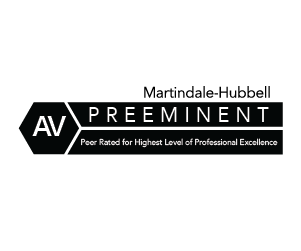Fortify Your Wealth, Secure Your Legacy
Your Premier Choice for Asset Protection
At Aliant llp, we specialize in more than just safeguarding assets; we safeguard legacies, dreams, and peace of mind. With globally recognized expertise, we offer personalized services tailored to your unique needs. Our approachable manner ensures every client feels heard and understood. Trusted by families worldwide, we’re committed to fortifying your future with integrity and excellence.
Seminars & Webinars
Learn about Asset Protection by attending a seminar taught by Jacob Stein. He offers professional-level seminars for attorneys and accountants, as well as, seminars catered to non-professionals.
Library
Download in-depth, expert articles by Jacob Stein on relevant asset protection and tax planning topics

Client Stories
Explore recent case stories for a better understanding of how Alaint, llp can protect your assets. With a track record of success, Jacob has assisted countless clients, including businesses and individuals, in safeguarding their assets. These stories are authentic, each presenting its own unique complexities.

What Do You Want to Protect?
Why Do You Need Protection?
Why Aliant?
Personalized asset safeguarding solutions
There is no right or wrong way to protect assets, and there are approximately two dozen frequently used structures. We will choose an appropriate structure after we analyze the types of assets that must be protected, the aggressiveness and intelligence of the creditor and their attorney, our client’s desire for peace of mind, the timing of the planning, available state and federal exemptions and certain other factors.
Over 3,000 successful transactions. We will protect your assets effectively and securely.
Learning Center
Explore a curated collection of educational videos at our Learning Center, where knowledge meets video. Whether you seek expert insights, quick lessons, or in-depth discussions, our center offers expert content on an array of topics aimed to help you protect your wealth.
FREQUENTLY ASKED QUESTIONS
GENERAL QUESTIONS
How is Jacob Stein, Esq. different?
Jacob Stein is different because he has the experience, the success stories, and capabilities that our competitors do not, allowing him the ability to offer his clients strategic and effective solutions to their asset protection needs.
Does Asset Protection really work?
Yes. In practice, a well-structured asset protection plan will discourage the plaintiff from suing you in the first place. Even if you are sued, an asset protection plan will make it very difficult, and sometimes impossible, for a plaintiff to reach your assets.
DOMESTICS STRUCTURES
Why is community property bad for asset protection?
Under community property laws each spouse is deemed to own all of the community property assets. Because a creditor can seize from you all the assets that you own, if either spouse is sued, all of the spouses’ assets are exposed to the lawsuit. In non-community property states (like New York), the separate property of one spouse is not subject to the claims of creditors of the other spouse. Fortunately, all community property states allow their residents to opt out of the community property system.
How do I protect my residence?
There are approximately 6 different techniques of protecting a personal residence. They include: the residence trust, a friendly equity strip, a bank equity strip, a sale to a friendly party, a sale to a third-party, a transfer into a single-member LLC. There is no one solution that works best for everyone. We will make the determination of what would work best for you, on a case by case basis.
FOREIGN STRUCTURES
Is it safe to invest money offshore?
Yes, and often much safer than investing in the U.S. Many European financial institutions have been around for hundreds of years. They have survived world wars and financial catastrophes. These are usually very large institutions that simply do not advertise their services in the U.S. and are not well known to U.S. investors. It surprises many Americans to find out that many of the world’s largest banks are names that they have never heard before. For example, BNP Paribas is larger than either Bank of America or JP Morgan Chase.
What are the tax consequences of foreign trusts?
None. A foreign trust will neither increase nor decrease your taxes. It is treated in exactly the same manner as your living trust. You will continue to report the income of the trust on your income tax return.
NEWS & INSIGHTS
Dive into our wealth of expertise. Explore articles, white papers, webinars, and more crafted by our asset protection specialists. Stay informed, empowered, and secure your financial future with our curated insights.
Your Family Comes First: A Responsible Adult’s Guide to Estate Planning and Asset Protection
https://youtu.be/KRSO9dwH1Vo During the holidays, we tend to focus more on our families and family obligations—our tendency is too often focused on fun and feel-good things and topics. Rarely do we consider doing something that is so truly important for our families –...
Structuring Foreign Investment in the United States
https://youtu.be/khltLevVIEg Structuring foreign investment in the U.S. is a hot topic. With lots of money pouring into the U.S. from the BRIC countries a lot of practitioners find themselves representing foreign clients. Representing such clients requires an...
The Netherland’s New Franchise Act Strengthens the Franchisee’s Position
On June 30, 2020, the Senate of the Netherlands adopted a new Franchise Act. The act was initially passed by the House of Representatives to strengthen the position of franchises and level out the playing field. Starting on January 1, 2021, all franchise agreements...
Force Majeure in the Age of Coronavirus
Without a vaccine to contain the Coronavirus, we are seeing its impact on local and global economies. Major sporting events have been cancelled or taken place in empty stadiums, tourist attractions all over the world are closed until further notice, and festivals and...
Protecting Real Property with an LLC or a Trust
Is there a best way for protecting real property? The quick answer is no, because there are so many variables to consider. Is it a personal residence or an income-producing property? How much equity is in the property? Which state is it in? How well do you want to...
Honored to be recognized by






